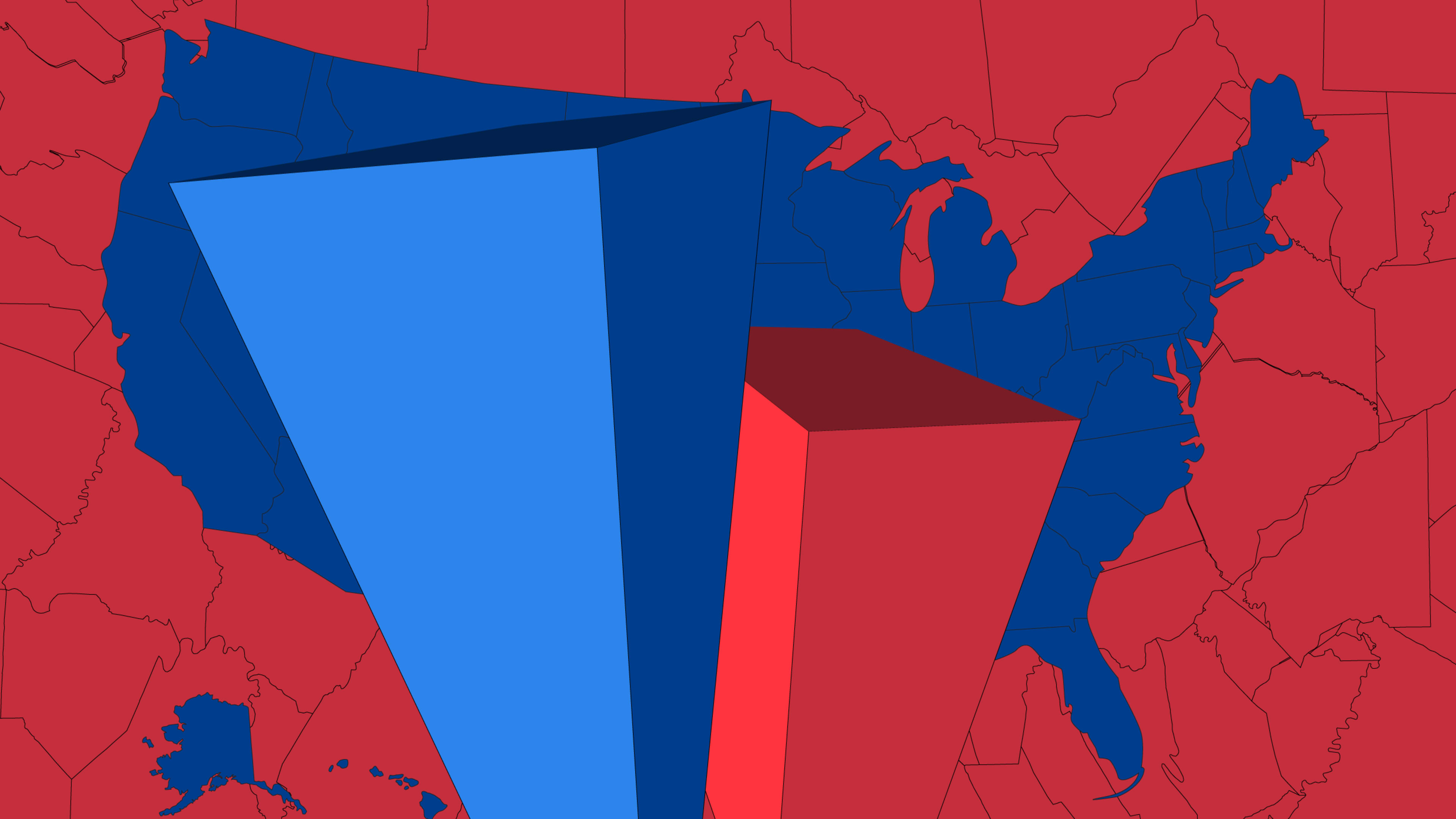Every time there’s a massive divergence between the results of the popular vote and the results in the Electoral College—as there was in 2000 and 2016—our electoral system comes under scrutiny. It may be how the Constitution was written, but critics argue that the system gives people in reliably red or reliably blue states much less sway in the election than the people in swing states. Republican votes in California, for instance, play essentially no role in electing the president. The arguments are effective: Three in five Americans would support ending the Electoral College, switching instead to electing the president via popular vote. The most straightforward way of making that reform would be via a constitutional amendment—but that bar is very high. In this election, Colorado residents voted on a more complicated solution, adding to an effort to essentially abolish the Electoral College without amending the constitution.
The National Popular Vote Interstate Compact is an agreement that would give the electoral votes from its member states to whichever candidate wins the popular vote. Once 270 electoral votes’ worth of states agree, winning the popular vote would secure the presidential win for the popular vote candidate.
In Colorado this election, voters weighed in on Proposition 113, a ballot question that asked residents if they supported Colorado joining the compact. Technically, Colorado already joined the agreement after a bill was passed by the state legislature and then signed by Governor Jared Polis in 2019, but Colorado has a referendum process where signatures can be gathered to put the legislative approval up to the public. The move to join was suspended pending a 2020 ballot referendum, organized by activists opposed to the idea.
This marks the first time that a state’s decision to join the compact has been put to voters, says Barry Fadem, president of National Popular Vote, the main organization behind the compact. National Popular Vote says the proposition was clearly headed to victory; on Wednesday afternoon, with 86% of the vote reporting, the question to join the compact was leading with 52.3% of the vote.
That voters chose to stay in the compact shows, Fadem says, how much individuals across the country want this change. “One thing we know, voters of this country want the president elected by a national popular vote,” he says. “They believe in two principles. Principle one: one person, one vote. Principle number two: every vote equal.” With elections like the one we’re currently in, where the winner comes down to a few battleground states, it’s clear to those in spectator states, he adds, that their votes don’t really count.
With Colorado and its nine electoral votes officially a part of the compact, the National Popular Vote Interstate Compact now has 15 states and the District of Columbia on board, accounting for 196 electoral votes. The states are: Delaware, Hawaii, Rhode Island, Vermont, Colorado, Connecticut, Maryland, Massachusetts, New Jersey, New Mexico, Oregon, Washington, California, Illinois, and New York.
Fadem thinks they’ll get the remaining 74 electoral votes on board before the 2024 presidential election, which would then benefit from less of the “chaos” that comes with the Electoral College. “If the national popular vote were in effect for this election, we’d know who won,” he says of the 2020 presidential race. “We are very optimistic that we will have this in place for the next election, so hopefully, this is the last election that this country will go through under the current system.”
National Popular Vote began its effort in 2005. Currently, it has passed bills to join the compact in one legislative chamber of nine states that together have 88 electoral voters. “But passing one chamber is passing one chamber. You need both and the signature of the governor for a bill to go into effect,” he says. Still, he says they’re working across the country to get those bills passed. For example, Virginia’s House of Delegates passed a bill to join last year, though it didn’t pass in the state senate. Fadem says they’ll renew that effort in 2021; if Virginia does then join, that brings the compact’s total to 207 electoral votes.
When he testifies in front of legislatures in support of the National Popular Vote Interstate Compact, Fadem says he likes to give an example of what it would mean for voters. “It’s election night, and you’re watching the returns. What does a voter want to know? They look up at the screen and let’s say it’s 22,284,000 [as] the national popular total,” he says. “They know that their vote is in that total, so it’s absolute confirmation that their vote really counted.”
Recognize your brand’s excellence by applying to this year’s Brands That Matter Awards before the final deadline, June 7.
Sign up for Brands That Matter notifications here.
